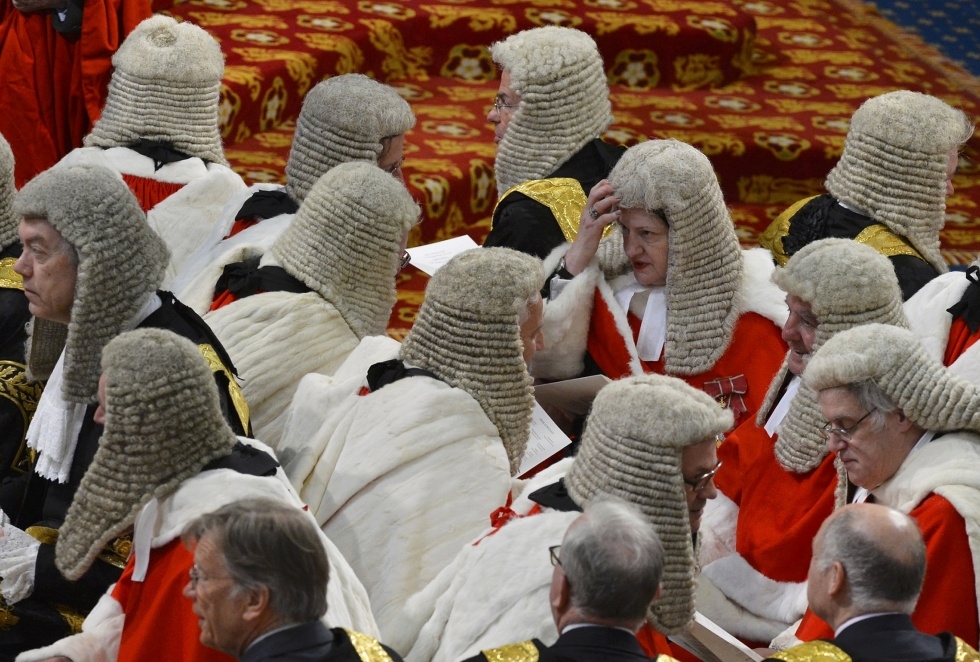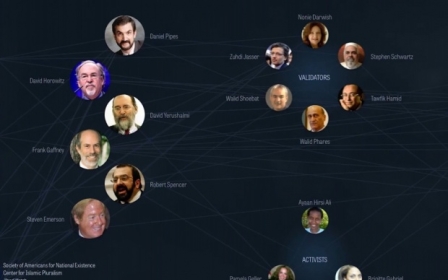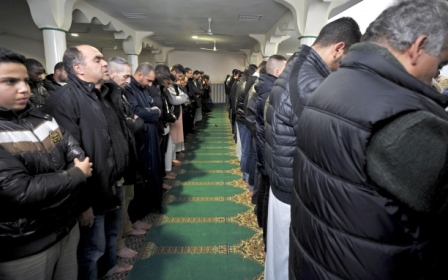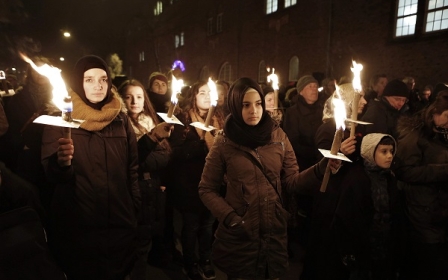Institutionalised McCarthyism: We are the guinea pigs in CTS Act

The much debated and controversial Counter Terrorism and Security Bill passed into English statute last week and is law. Perhaps many people in the country don’t really understand its implications, but for those who have been the targets of the numerous terrorism laws passed over the last 14 years, this is another step towards institutionalised McCarthyism.
The proposed law, or bill, had to go through a rigorous process of three readings: a committee stage and a report stage in each of the House of Commons and House of Lords before final amendments were made and royal assent was given and it was passed as an Act of Parliament. Hence, it appears as if this law was thoroughly considered and received cross-party support. The problem is that almost all those involved in the process of making law will never know what its like to be on the receiving end of it.
The CTS Act (2015) may be the latest in a series of 10 laws that have been passed in the UK since the Terrorism Act (2000) - even predating the war on terror. But there is plenty of precedence for the reactionary, knee-jerk school of thought from where it stems.
The Anti-Terrorism Crime and Security Act (2001) came into force two months after the September 11 attacks and allowed the imprisonment of foreign national terror suspects without charge or trial. In 2005, the House of Lords ruled that the detention of 13 non-UK citizens held for three years, including Jordanian cleric Abu Qatada, had in fact been illegal. However, intransigent politicians once again rushed through draconian laws, which now introduced control orders on the same men - and some others - over the next six years. Control orders imposed a kind of house arrest and forced relocation based on secret evidence and denied those targeted – and the families who lived with them - access to mobile phones, internet, visitors and heavily restricted their money, time spent outside and movement.
Although almost all the targets of anti-terror laws have been Muslims - and dissident Irish Republicans – it wasn’t all Muslims who were susceptible to falling foul of the law. Only those deemed to be involved in acts of politically or ideologically motivated violence at home or abroad were targeted.
Shortly after the London bombings of 7th July, however, another reactionary law, Terrorism Act (2006) was passed and young Muslims were prosecuted for browsing the Internet, writing poetry and publishing books under “glorification of terrorism” rules. Criminalisation of thoughts and ideas was made finally possible in Britain, the land of literature and poetry.
These particular cases were eventually quashed on appeal but the laws still remain and prosecutions under them continue.
The Terrorism Prevention and Investigation Measures (TPIM) Act (2011) replaced control orders from the previous law after it was found that they infringed on the rights of suspects and, in many cases, had made life unbearable.
One reason behind the demise of control orders was the forced relocation. Most of the control order regime in fact remained intact at the behest of the security services. But former Director of Public Prosecutions, Lord MacDonald, rebuked forced relocation in no uncertain terms in his 2011 report:
“This [forced relocation] is a form of internal exile, inimical to traditional British norms. In the absence of any intention to charge, still less to prosecute, no British citizen should be told by the government where he may or may not live. The review is clearly right to recommend the abolition of this thoroughly offensive practice. It is disproportionate and there is no justification for its retention.”
Forced relocation is back as a part of the new CTS Act and is now law.
Last year, I was held in HMP Belmarsh with a man who was imprisoned for breaching his TPIM: he’d bought a new “smart” television which had internet capabilities, even though he had no internet connection at home, as part of his restrictions. He was arrested and imprisoned as a Category A prisoner the same day. I remember joking with him that next time he’d be better off buying a stupid television. How could anyone possibly believe a man could be imprisoned for buying a television? This is something you’d expect to hear perhaps under Taliban or ISIS regimes, not in Britain.
Last week, I took part in an East London debate entitled The Big Question: how free is speech. During heated exchanges a question was put to the audience about how many of them had been stopped and questioned under anti-terror legislation. The response was truly shocking. Over two-thirds of more than 250 attendees raised their hands. One audience member, an NHS doctor, explained how he’d been identified by concerned members of the public, to armed police who approached him because of his “suspicious beard”. It was a majority Muslim audience. Sadly, some panel members simply couldn’t bring themselves to understand or empathise with the sheer weight of sentiment the laws and attitudes of the past 14 years have created.
By February 2014, the Government had stripped 41 citizens of their British nationality in truly medieval fashion. The majority of these people were Muslims. Some of these British men were shortly afterwards extrajudicially assassinated by drone strikes, such as Mohammed Sakr, or renditioned to the US, like Mahdi Hashi. Several others since have had nationality revoked. Many people - including me - have had their passports confiscated by the power of the Royal Prerogative exercised by the Home Secretary.
The above examples show how these powers existed and were liberally applied well before the CTS Act was passed or even deemed necessary although, under the new law, the police have the power to confiscate passports without seeking express governmental permission.
Added to this raft of measures are temporary exclusion orders for British citizens. This essentially means that Britons can be barred from returning to the UK. How rigorously and transparently these measures can be challenged remains to be seen: once again we will be the experimental guinea pigs who will have to remain imprisoned, exiled or under strict bail measures until our innocence is proven, and not the other way round.
The most controversial aspect of the CTS Act, however, has been around the definitions of the terms like “extremism” and “radicalisation” with the onus on teachers, lectures, healthcare workers, prison officers, social workers and policeman who are required by law to interpret what they mean and apply their understanding to a trusting public. They are George Orwell’s 1984 “though-police” in David Cameron’s 2015 big society.
When the Chief Constable of Britain’s second city expresses fears that his officers risk becoming “thought police” as the country “drifts towards a police state”, those with their fingers in their ears need to listen before it’s too late. In the meantime, the rest of us must accept that this new law has granted unprecedented powers to the police and brace ourselves for the next challenge.
- Moazzam Begg is a former Guantanamo Bay detainee and currently the director of outreach for UK-based campaigning organisation CAGE.
The views expressed in this article belong to the author and do not necessarily reflect the editorial policy of Middle East Eye.
Photo: Judges sit in the House of Lords as they wait for the start of the State Opening of Parliament in London 8 May 8, 2013
New MEE newsletter: Jerusalem Dispatch
Sign up to get the latest insights and analysis on Israel-Palestine, alongside Turkey Unpacked and other MEE newsletters
Middle East Eye delivers independent and unrivalled coverage and analysis of the Middle East, North Africa and beyond. To learn more about republishing this content and the associated fees, please fill out this form. More about MEE can be found here.





